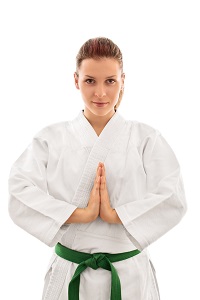 In other words, in order to exert the effort to accomplish a goal, do you always have to give something up? The short answer is yes. If I do A, I can’t at one and the same time do B. I have to give B up. I can’t at one and the same time waste my time reading about the JonBenet Ramsey murder case and also do something productive. (I don’t know exactly why I’ve recently allowed myself to get drawn into that horrible quagmire all over again, but once I say to myself, “I’ll just google this really quick and see if there’s anything new” I might as well shoot myself in the foot and be done with it.)
In other words, in order to exert the effort to accomplish a goal, do you always have to give something up? The short answer is yes. If I do A, I can’t at one and the same time do B. I have to give B up. I can’t at one and the same time waste my time reading about the JonBenet Ramsey murder case and also do something productive. (I don’t know exactly why I’ve recently allowed myself to get drawn into that horrible quagmire all over again, but once I say to myself, “I’ll just google this really quick and see if there’s anything new” I might as well shoot myself in the foot and be done with it.)
TIME magazine published an article in 2013 on the subject of self-discipline, drawing on research done by the Association for Psychological Science. Are self-disciplined people happier, or do they tend to be joyless killjoys? And of course they’re happier. We all know that. We all know that when we have conflicting goals, 99% of the time a short-term indulgence vs. a long-term accomplishment, that we will not be happy if we give in to the short-term indulgence. I’ve been struggling with this issue for ages. Over 25 years ago I wrote:
So what does this magic word “discipline” actually mean? It means that, when you have it, you do what you ought to do , and nut just what you want to do. “How dreary!” I hear you say. Well, not really. It is actually the chronically undisciplined person’s life that is dreary. She is constantly nagged by thoughts of what ought to be done and isn’t; she’s caught at the last minute with preparations unmade; her life tends to be one long frantic game of catchup. The disciplined person, on the other hand, has a far more serene life . . . Her preparations are made. She has a tremendous feeling of accomplishment at the end of most days. Those frantic zero-hour nervous breakdowns don’t happen to her. . . . I have found that one of the most helpful things I can do on a purely human level to develop discipline is to visualize as intensely and clearly as I can what the consequences will be if I don’t do what I’m supposed to do, vs. what will happen if I do it.
Hmmm. Pretty good advice. Trying to look back on the choice from the future as I make the choice in the present. Mental gymnastics of a sort, or perhaps more like mental time travel. Whatever it is, I need to do it before plugging in that search term!
See the complete article on self-discipline and happiness here.